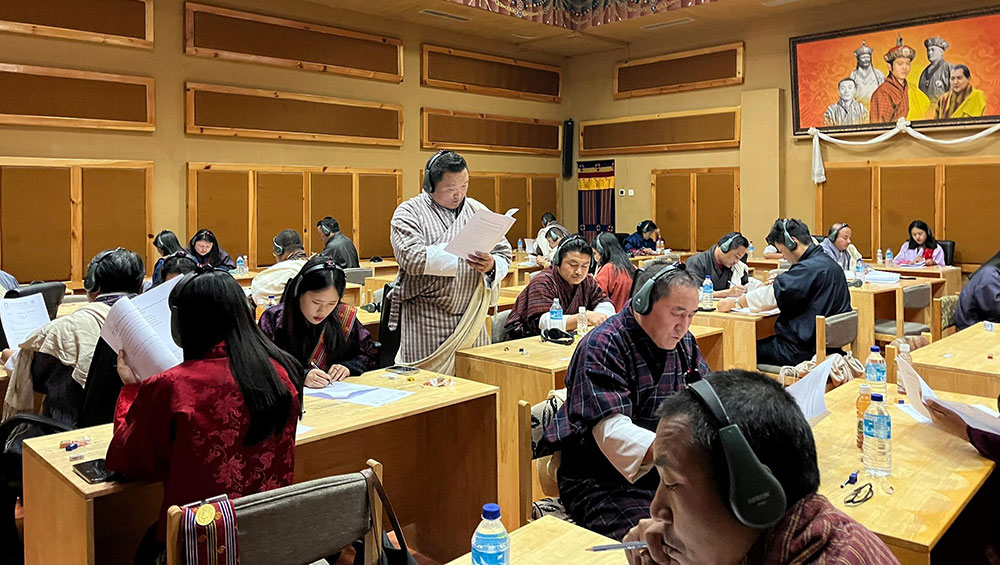Thinley Namgay
The Department of Culture and Dzongkha Development (DCDD) has conducted the Dzongkha competency test eight times since 2020 through the Dzongkha Standard Testing System (DSTS).
DSTS, which is a pilot Dzongkha test, has so far seen the participation of close to 300 Dzongkha enthusiasts, comprising public administration students from the Royal Institute of Management, students from Royal Thimphu College and Sherubtse College, civil servants from Samtse Dzongkhag (P5–P1), local government leaders, DCDD employees, and officials from four departments under the home ministry.
The DSTS, offline test, is designed for all citizens to assess their Dzongkha skills in reading, writing, speaking, and listening. It to establish a uniform Dzongkha testing system, as different agencies adhere to their respective systems with varied formats.
DCDD’s Deputy Chief Research Officer, Sonam Rinchen, said the test is not mandatory. The score scale for the test ranges from 1 to 10.
“So far, the participants’ average score was 5.5, which is just satisfactory. There are a few who managed to score seven out of 10. The lowest score was 3, and the highest was 7,” Sonam Rinchen said.
He mentioned that many participants performed well in listening and speaking but struggled in the reading and writing categories.
In the writing section, participants were asked to write an official letter, note sheet, essay, and more. In the reading test, participants had to read two passages, followed by an extempore speech on a given topic in the speaking test, and listen to audio recordings in the listening test.
Moreover, the writing test comprises eight types of questions: multiple choice, short answer questions, sentence completion, fill-in-the-blanks, yes/no or true/false questions, matching, diagrams and charts, and summary questions.
The listening and reading tests each consist of 50 questions, allotted 50 marks.
For the listening test, the audio recordings feature monologues, interviews, dialogues, or discussions between two or more people.
The most recent test, conducted between November 26–27, was taken by 40 officials from four departments under the home ministry following an office order issued by Home Secretary Sonam Wangyel. On average, they scored 5.
Sonam Rinchen said the DCDD plans to conduct the test for other citizens in the future, which is for free. He views the DSTS as similar to the International English Language Testing System (IELTS), which has a score scale of 1 to 9.
He added that the test also promotes the Dzongkha, which is crucial for preserving national identity.
The DSTS was designed under the command of the Royal Civil Service Commission (RCSC), but the RCSC refused to comment.


